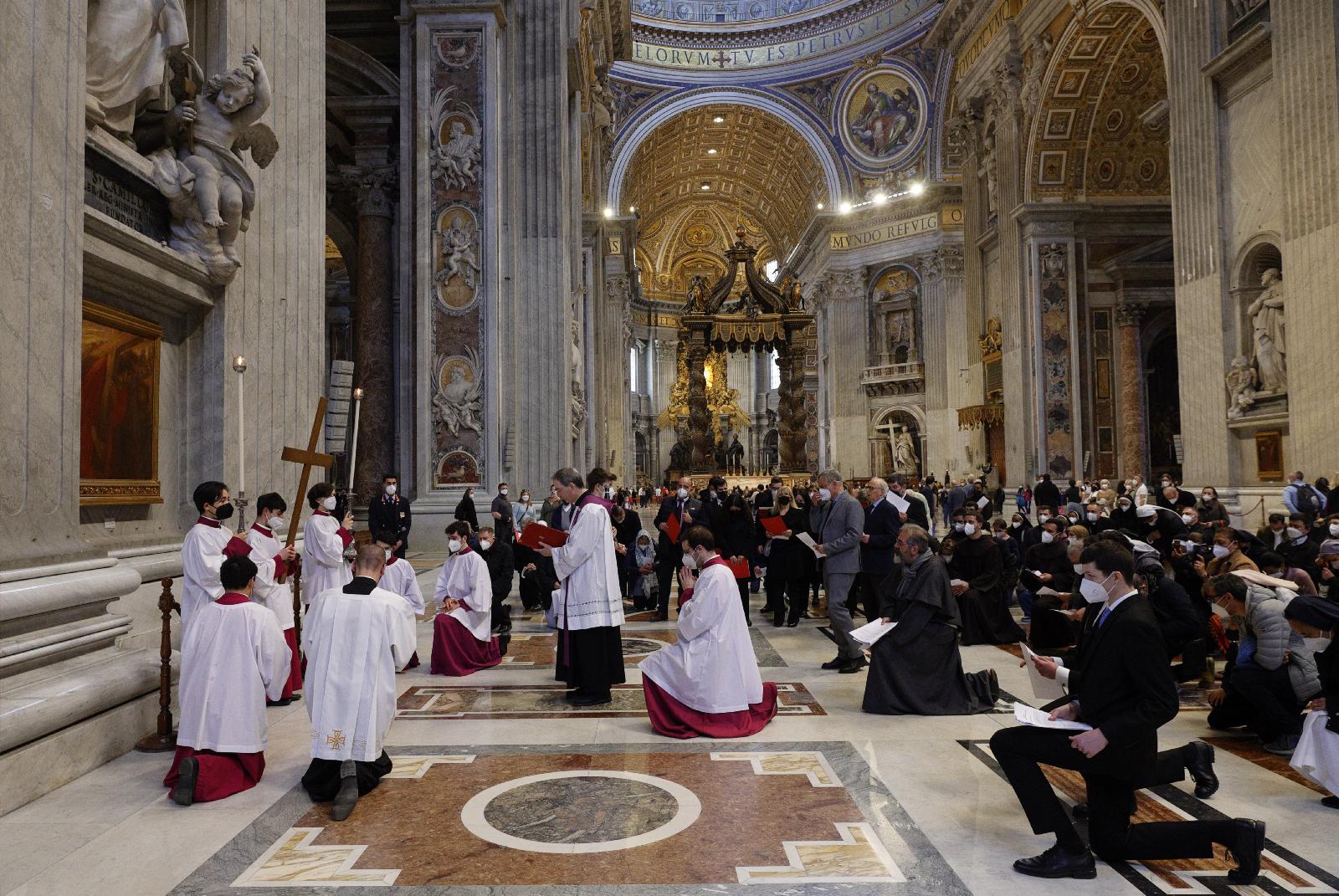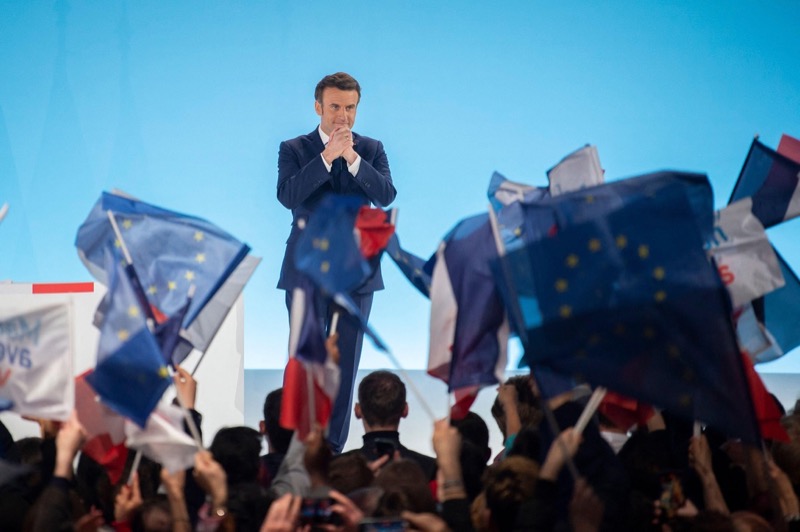Emmanuel Macron topped the field in the first round of France’s presidential vote on Sunday, but the country’s political divide widened and far-right candidate Marine Le Pen loomed as a serious threat to his reelection.
The centrist president scored 27.6 percent of the vote, up 3.5 points over his first round in 2017, and urged his cheering supporters to build “a large political movement of unity and action” to block a far-right victory in the 24 April runoff.
He will need it. Marine Le Pen, the once-shunned head of the National Rally, formerly National Front, party, softened her image and blurred her policies enough to win 23.4 percent of the vote.
The next two weeks will show if she can beat the narrowly favoured Macron.
The main takeaway from the first round is that France, where the two traditional parties – Gaullists and Socialists – have all but disappeared, is more divided than ever.
More than half the voters cast their ballots for far-right, far-left and far-far right parties.
“Whoever is optimistic about these figures from France was not alive in 2016,” a German analyst commented.
Macron, a former investment banker, has become the victim of his own success in claiming the broad centre of French politics.
After being the new face in the 2017 election, he now appears to many as an aloof “president of the rich” talking more to Russian President Vladimir Putin than to them.
This has let the fringes flourish, fostering nationalist populism at a time when the Ukraine war, with its imperial overtones and rising costs, presents a major challenge for Western democracy in general. This nationalist populism has been hard on Catholic voters, since it has all but drowned out debate on issues important to them like bioethical questions of same-sex marriage or surrogate motherhood.
“On Sunday, we will not elect a saviour of France, nor a messiah, nor someone who should embody all the good to be done,” Archbishop Éric de Moulins-Beaufort, head of the bishops conference, told voters last week.
“We have to choose a political leader who must guide our country in the still uncertain times humanity faces (with its) social fractures, health crisis, ecological crisis, and with war always possible.”
Valérie Pécresse, the candidate possibly closest to the ephemeral “Catholic vote”, limped home in fifth position with 4.8 percent of the vote.
Twelve politicians, mostly no-hopers, ran in the first round.
One unknown between the two rounds is how the 20 per cent who voted for the veteran far-left candidate Jean-Luc Mélenchon will swing.
Some of his supporters may back Le Pen in the runoff because they share her opposition to Nato, the European Union and “humiliating Russia”. Mélenchon himself was clear on that point: “We know for whom we will never vote. You must not give your vote to Madame Le Pen,” he told supporters firmly after the results came out. “Do not give in to errors that will be difficult to repair.”
Macron, who has not succeeded in building a solid party out of his centre-right and centre-left support of 2017, hinted he knew he needed allies. “I’m ready to invent something new,” he told supporters, not yet divulging what that was.
As president, Macron has cut unemployment, backed the European Union, and pushed both defence and diplomacy.
As politics polarised, he has tried to balance a tough stand on what he calls “Muslim separatism” with welfare-state benefits during the pandemic.
But resentment outside successful urban centres has enabled Le Pen to tour the country focusing on issues many voters stress like rising inflation and supposed setbacks to French identity and sovereignty.
Having the even further-right Éric Zemmour stoking fears of a “great replacement” by Muslims let her play down her onetime divisive trademark issues.
Le Pen no longer wants to pull out of the European Union or replace the euro with the French franc. But policies like “French first” hiring or tighter immigration amount to a hollowing out of national and EU rules as seen in Hungarian Prime Minister Viktor Orbán’s “illiberal democracy”.
Her staff have already drafted several bills to change French law if she wins. Didier Leschi, an expert on French laïcité, or secularism, calls a draft banning Muslim headscarves in public “a totalitarian text”.



 Loading ...
Loading ...